Blog
Top DevOps Tools for Small Businesses and Startups in 2025

Discover the top DevOps tools that streamline workflows, cut costs, and boost efficiency for startups and small businesses in 2025. Keep reading below 👇🏾
The secret to startup success lies in agility, precision, and smart decisions. Today, DevOps tools for small businesses and startups are indispensable for scaling operations, streamlining workflows, and achieving faster, error-free deployments. Startups leveraging these tools can eliminate repetitive tasks, deploy confidently, and focus on what truly matters – innovation and long-term growth.
Research shows that businesses implementing DevOps automation report 50% faster deployment cycles and achieve 30% cost savings annually. By 2026, the DevOps market is projected to grow to $20.01 billion (about $62 per person in the US), with startups leading the charge in adopting automation tools like Jenkins, Docker, and Kubernetes to optimize workflows and boost productivity.
The real challenge lies in finding the best DevOps tools for startups in 2025 – tools that align with your team’s needs, budget, and goals. That’s where Cloudsania comes in. By integrating industry-leading technologies into a seamless ecosystem, we simplify DevOps adoption, empowering startups to work smarter, faster, and more effectively. In this guide, we’ll explore top DevOps tools, their benefits, and how to strategically leverage them for scalable success.

Selecting the best DevOps tools for startups in 2025 isn’t just about solving immediate challenges; it’s about future-proofing your business. Share on X
Table of Contents
What Are DevOps Tools and Why Do Startups Need Them?
DevOps tools are specialized technologies designed to automate and enhance critical development and operations workflows. These tools ensure smoother collaboration between teams, faster deployments, and fewer errors. For startups, they are vital for staying competitive while managing costs and scaling operations efficiently. From continuous integration (CI) and continuous deployment (CD) to monitoring and logging, DevOps tools for small business success lay the foundation for agility and growth.
At Cloudsania, we’ve integrated industry-leading tools to supercharge your cloud automation experience. Share on XKey Benefits of DevOps Tools for Startups
- Faster Deployments: Reduce time-to-market with tools like Jenkins for continuous integration and Docker for consistent containerization.
- Collaboration: Use collaboration tools like Slack to ensure team members stay in sync.
- Cost Efficiency: Cut expenses by optimizing resource usage with monitoring tools like Grafana.
- Enhanced Scalability: Adopt tools like Kubernetes to grow your infrastructure as your needs expand.
Recommended: The Ultimate Guide to Multi-Cloud Cost Optimization
Top DevOps Tools for Startups
1. Jenkins: The Automation Powerhouse for Startups
Jenkins is a robust, open-source automation server that excels at managing continuous integration (CI) and continuous deployment (CD) workflows. Its modular design and extensive plugin ecosystem make it the perfect companion for startups aiming to streamline their DevOps pipelines.
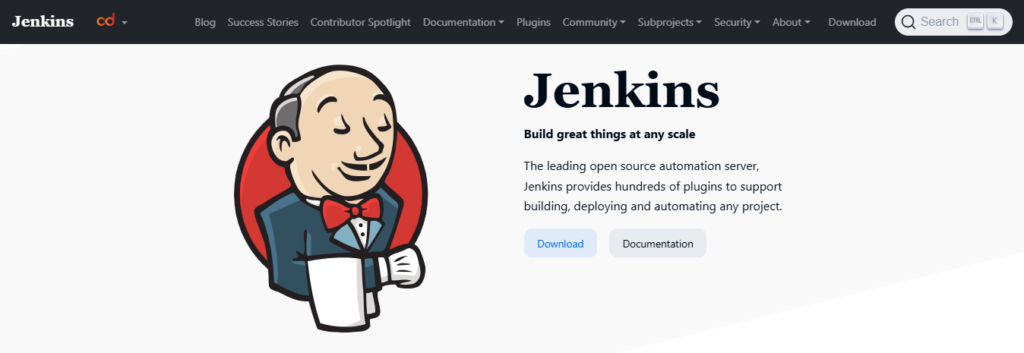
Why Jenkins?
Jenkins integrates seamlessly with almost any technology stack. It triggers automated processes through repositories like GitHub, Bitbucket, and GitLab, and pairs effortlessly with build tools like Maven and Gradle. Its support for container technologies such as Docker and Kubernetes further enhances its flexibility, allowing startups to automate testing and packaging.
Pro Tip: Use Jenkins plugins like Blue Ocean and Pipeline to reduce manual intervention, automate builds, and achieve faster time-to-market for your releases.
2. Docker: Simplify Containerization with Confidence
Docker is the industry standard for containerization, enabling startups to package applications and their dependencies into portable containers. This consistency between development and production environments ensures smooth deployments, reducing costly errors.
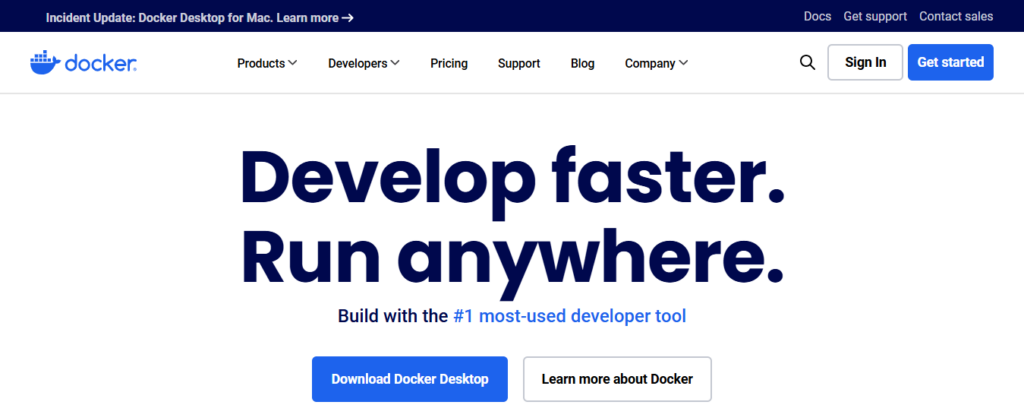
Why Docker?
Docker eliminates the “it works on my machine” problem by isolating application environments. This is especially useful for startups adopting microservices architecture, as Docker ensures compatibility and consistency across systems.
Speaking about a use case, startups running applications in multiple environments can rely on Docker to streamline workflows thereby enabling seamless scaling.
Pro Tip: Pair Docker with Docker Compose for easier orchestration of multi-container applications.
3. GitLab: The All-in-One DevOps Solution
GitLab takes the complexity out of DevOps by combining version control, continuous integration (CI), continuous deployment (CD), and monitoring into one unified platform.
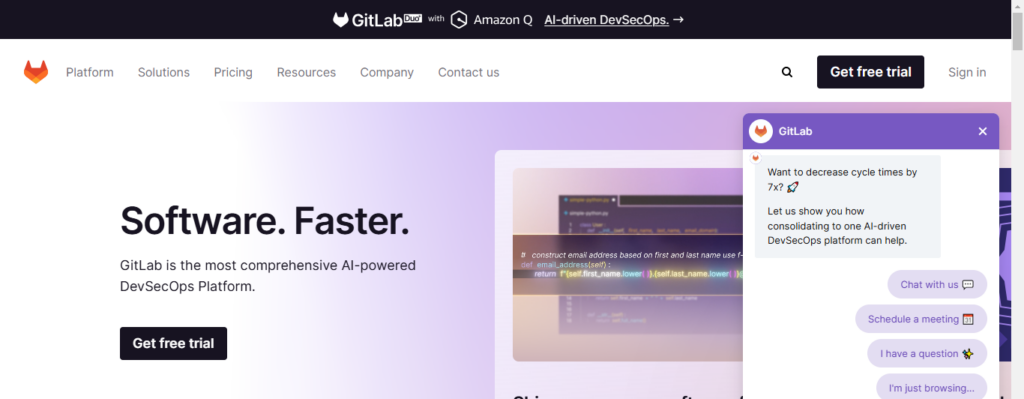
Why GitLab?
Startups benefit from GitLab’s end-to-end visibility and collaborative tools. By centralizing your codebase, workflows, and monitoring, GitLab simplifies operations and reduces context-switching for your team.
Pro Tip: Leverage GitLab’s built-in CI/CD pipelines to automate testing and deployments directly within your repository, saving time and increasing efficiency.
4. Kubernetes: Orchestrating Complex Workloads with Ease
Kubernetes is a powerful open-source platform that automates the deployment, scaling, and management of containerized applications.
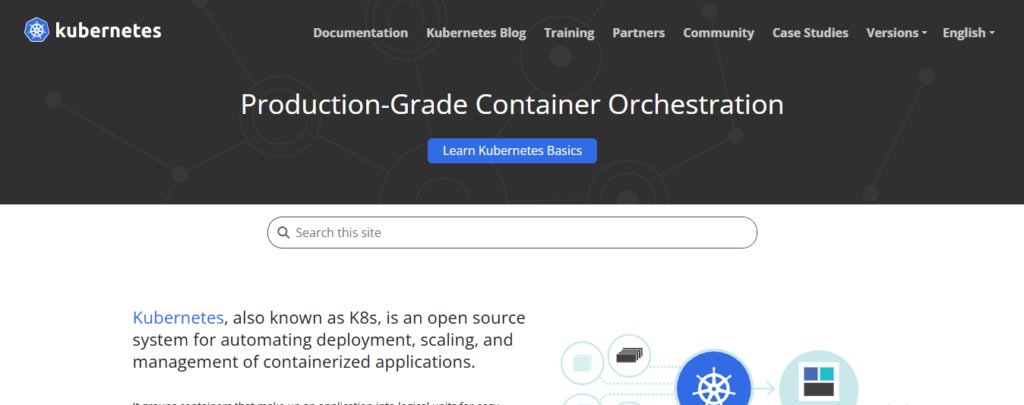
Why Kubernetes?
For startups managing complex systems or multiple containers, Kubernetes offers unmatched scalability, high availability, and operational efficiency. It’s particularly valuable for workloads that need to scale dynamically based on demand.
Over time, we’ve noticed that teams deploying microservices can rely on Kubernetes to optimize resource allocation and ensure smooth performance under varying loads.
Pro Tip: Use Kubernetes with Helm charts to simplify application deployment and management.
5. Ansible: Low-Overhead IT Automation
Ansible is the go-to tool for startups looking to automate IT tasks without adding complexity. Its agentless architecture and YAML-based playbooks make it easy to configure systems, deploy applications, and orchestrate workflows.

Why Ansible?
Startups benefit from Ansible’s lightweight design, which eliminates the need for additional agents or dependencies. Its ability to automate repetitive tasks helps teams focus on strategic objectives instead of manual maintenance.
Pro Tip: Start with Ansible’s pre-configured playbooks for common tasks to get up and running quickly, especially when managing multiple servers.
Bonus: Integrated Tools on Cloudsania
At Cloudsania, we’ve integrated industry-leading tools to supercharge your cloud automation experience. Here are two highlights:
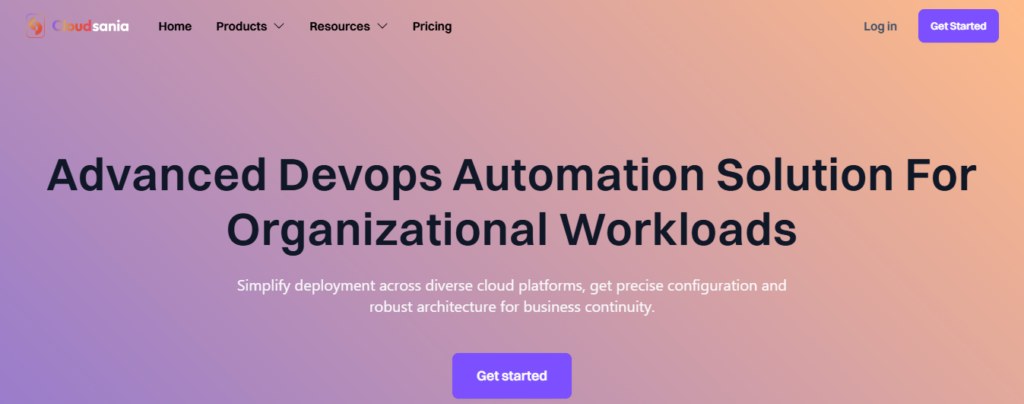
- Slack: Centralize communication with Slack integrations, ensuring real-time updates on deployments, issues, and alerts.
- Grafana: Gain actionable insights with Grafana’s rich visualizations, enabling you to monitor performance and optimize workflows effectively.
These tools, combined with Cloudsania’s powerful platform, create a seamless ecosystem that supports startups in achieving their DevOps goals.
How Startups Can Choose the Right DevOps Tools
With so many tools on the market, selecting the right ones for your startup can feel overwhelming. Here’s a step-by-step guide to make an informed decision:
- Define Your Needs: Identify whether your focus is on automation, continuous deployment, containerization, or monitoring.
- Evaluate Scalability: Choose tools that grow with your startup. Kubernetes, for example, excels at scaling containerized applications.
- Consider Integration: Ensure the tools you choose integrate seamlessly with each other. For instance, Jenkins and Docker work exceptionally well together.
- Prioritize Cost Efficiency: Opt for tools with transparent pricing or free tiers that fit your startup’s budget.
Key Features to Look for in DevOps Tools
| FEATURE | WHY IT MATTERS | EXAMPLE TOOLS |
| Continuous Integration | Automates the testing and integration of code changes. | Jenkins, GitLab |
| Containerization | Ensures consistency across environments. | Docker, Kubernetes |
| Monitoring and Logging | Tracks system performance and identifies issues. | Grafana, Prometheus |
| Collaboration Tools | Enhances team communication. | Slack, Jira |
| Infrastructure as Code (IaC) | Automates infrastructure management. | Ansible, Terraform |
Recommended Reading: 5 Steps to Implement Cloud Automation
Why DevOps Tools are Critical for Small Businesses
According to recent surveys, startups using DevOps automation report:
- 40% fewer deployment errors with tools like GitLab CI.
- 50% faster time-to-market by leveraging containerization and CI/CD workflows.
- Significant cost savings, with tools like Grafana enabling real-time cost tracking.
Common Challenges Startups Face When Adopting DevOps
- Tool Overload: Many startups struggle to manage too many tools at once. Start small with essential tools and scale gradually.
- Skill Gaps: Training your team on new tools can be a barrier. Choose tools with intuitive interfaces and comprehensive documentation.
- Cost Concerns: Startups often have tight budgets. Opt for tools with free tiers or ones known for delivering high ROI.
Best Practices for Implementing DevOps Tools in Startups
- Start with a Small Stack: Begin with essential tools like Docker, Jenkins, and Grafana to avoid unnecessary complexity.
- Automate Early: Use Ansible or Terraform to automate repetitive tasks, saving time and reducing manual errors.
- Monitor Continuously: Integrate monitoring tools like Grafana to track system health and ensure smooth operations.
- Encourage Collaboration: Leverage Slack or similar tools to foster real-time communication and problem-solving.
Read this: How to Secure Your Data While Scaling in the Cloud
FAQs About DevOps Tools for Startups
What are the top DevOps tools for startups?
Jenkins, Docker, Kubernetes, GitLab, and Ansible are among the top tools, offering solutions for CI/CD, containerization, and automation.
Why is Kubernetes important for startups?
Kubernetes simplifies the management of containerized applications, enabling startups to scale efficiently without downtime.
How do DevOps tools reduce costs?
By automating workflows, optimizing resource use, and streamlining deployments, DevOps tools significantly cut down operational expenses.
Can small businesses benefit from GitLab?
Yes! GitLab provides an all-in-one platform for version control, CI/CD, and monitoring, making it perfect for small teams.
What’s the role of monitoring tools in DevOps?
Monitoring tools like Grafana provide real-time insights into system performance, ensuring faster issue resolution.
Final Thoughts: Build Smarter, Grow Faster
Selecting the best DevOps tools for startups in 2025 isn’t just about solving immediate challenges; it’s about future-proofing your business. By adopting tools like Jenkins for CI/CD pipelines, Docker for containerization, and Kubernetes for orchestration, startups can unlock new levels of efficiency and scalability.
At Cloudsania, we’re dedicated to helping startups and small businesses embrace the full potential of DevOps tools for small business success. Our platform integrates top-tier technologies into a unified solution, enabling teams to optimize costs, improve collaboration, and focus on delivering exceptional results.
With the right tools and strategies, your startup can simplify workflows, enhance productivity, and accelerate growth. Ready to take your DevOps journey to the next level? Let’s build smarter, together.
